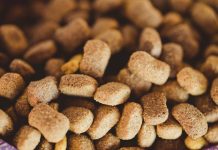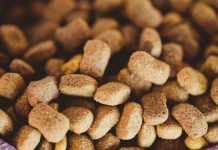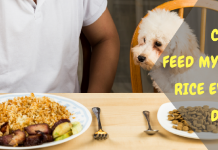Welcoming a new puppy into your home is an exciting and joyful experience, filled with wagging tails, playful barks, and boundless energy. As a pet parent, you want to ensure your furry friend grows up healthy and happy, and one of the most crucial factors in achieving this is their diet. Just like in humans, the food your puppy consumes can significantly impact their behavior and energy levels. In this article, we will explore the fascinating connection between puppy food and your pet’s behavior, offering insights into how you can make informed choices to nurture a well-balanced, energetic, and content companion. Whether you’re a first-time puppy owner or a seasoned dog lover, understanding the role of nutrition in your puppy’s development is key to fostering a harmonious and lively household. Let’s embark on this journey to uncover the secrets of how the right puppy food can transform your pet’s daily life.
Choosing the Right Nutrients to Boost Your Puppys Energy Levels
To keep your puppy bouncing with vitality, it’s crucial to focus on their nutritional intake. The right nutrients can play a significant role in maintaining their energy levels and promoting healthy behavior. Protein is a cornerstone of a puppy’s diet, aiding in muscle development and supporting active playtime. Opt for high-quality sources like chicken, lamb, or fish. Carbohydrates are equally essential as they provide the quick energy puppies need for their boundless adventures. Look for ingredients like sweet potatoes, brown rice, or oats in their food.
- Fats: Essential fatty acids, particularly omega-3 and omega-6, contribute to brain development and a shiny coat.
- Vitamins and Minerals: Ensure the food includes vitamins A, D, E, and B-complex, as well as minerals like calcium and phosphorus for bone health.
- Fiber: A balanced fiber intake aids digestion, ensuring your pup absorbs all the nutrients they need.
Choosing a balanced diet tailored to your puppy’s breed, size, and activity level can make a significant difference in their energy and overall well-being. Always consult with your veterinarian to tailor a diet plan that best suits your furry friend’s unique needs.

Understanding the Link Between Diet and Puppy Behavior
When it comes to nurturing a happy and energetic puppy, the role of diet is often underestimated. The nutrients in their food not only fuel their growth but also significantly influence their behavior. Proteins, carbohydrates, and fats are the building blocks that affect a puppy’s energy levels and mood. An appropriate balance of these nutrients can lead to a well-behaved and lively pup, while an imbalance might result in hyperactivity or lethargy. Ensuring your puppy’s diet includes high-quality ingredients can make a noticeable difference in their daily activities and interactions.
It’s crucial to be mindful of certain components in your puppy’s diet that can impact their behavior:
- Protein Quality: Opt for animal-based proteins which are more digestible and beneficial for growth and development.
- Omega-3 Fatty Acids: These support brain development and can contribute to a calm demeanor.
- Carbohydrates: Provide a steady source of energy, but excessive amounts might lead to spikes in energy levels.
- Avoid Artificial Additives: Dyes and preservatives may affect mood and cause restlessness.
By carefully selecting the right puppy food, you can foster not just physical health but also a balanced temperament, ensuring your furry friend thrives both inside and out.
Tailoring Your Puppys Diet for Optimal Growth and Well-being
When it comes to nurturing your furry companion, understanding the intricate link between diet and behavior is key. A well-balanced puppy diet doesn’t just fuel their body, but also influences their temperament and energy levels. Here are some crucial factors to consider:
- Protein Quality: High-quality proteins are vital for muscle development and repair. Ensure your puppy’s food contains adequate animal-based proteins, as they are easier to digest and provide essential amino acids.
- Carbohydrates for Energy: Carbohydrates provide the necessary energy for your playful pup. Opt for complex carbs like sweet potatoes and brown rice, which release energy slowly and help maintain steady blood sugar levels.
- Healthy Fats: Essential fatty acids, such as omega-3 and omega-6, are crucial for brain development and a shiny coat. Foods rich in fish oil or flaxseed can enhance cognitive function and promote calm behavior.
- Vitamins and Minerals: Ensure a diet rich in vitamins like A, D, and E, and minerals such as calcium and phosphorus, to support bone growth and immune function.
By paying close attention to these dietary components, you can tailor your puppy’s meals to support not only their physical growth but also their emotional and mental well-being. A happy, healthy diet leads to a happy, healthy puppy!
















